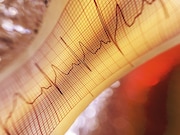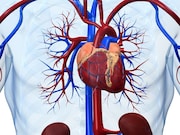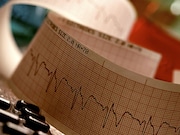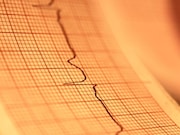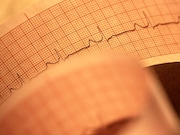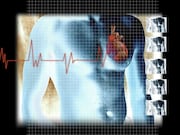Tag: Atrial Fibrillation
Incident A-Fib Linked to Increased Dementia Risk
Oral anticoagulant use has preventive effect on dementia development in patients with incident AF
Risk Factors ID’d for Atrial Fibrillation With Type 1 Diabetes
Risk factors for developing atrial fibrillation similar to those seen for other forms of cardiovascular disease
Burden of New-Onset A-Fib Considerable After TAVI, AVR
Odds of in-hospital mortality increased in TAVI, AVR hospitalization with new-onset atrial fibrillation
β-Blockers May Moderate Impact of Stress on Atrial Fibrillation
Likelihood of atrial fibrillation episode up during anger or stress; β-blockers can attenuate effect
Preablation Bariatric Surgery Linked to Reduced A-Fib Recurrence
Bariatric surgery was only independent predictor of arrhythmia-free survival in multivariate analysis
ACC: Catheter Ablation Does Not Cut Mortality, Stroke in A-Fib
But it is associated with more favorable quality-of-life end points at 12 months versus medical therapy
Most A-Fib Patients Have at Least One Identifiable Trigger
Triggers more commonly associated with family history of atrial fibrillation, less likely with CHF
Long-Term Incidence of A-Fib Increased in Women With Breast Cancer
Women younger than 60 years have increased short-term, longer-term risk
NOACs Recommended as First-Line Prevention of Stroke in A-Fib
Updated guidelines also emphasize weight loss for overweight, obese patients with atrial fibrillation
Moderate Drinking Linked to Electroanatomic Changes in A-Fib
Moderate drinkers had lower mean global bipolar voltages, slower conduction velocity vs. nondrinkers


